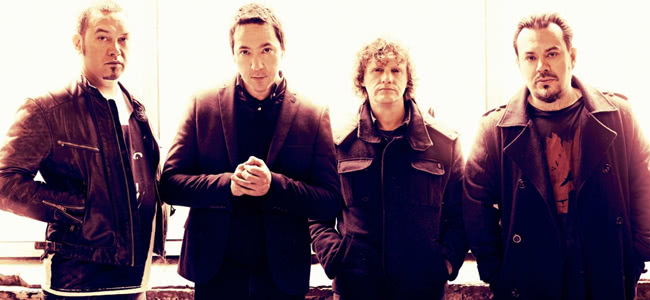Back in February, we reported on a groundbreaking pilot study that came out of Victoria University, which shed light on the unsettling truth about working in the Australian entertainment industry.
The study, which evaluated the mental health and wellbeing of Australia’s entertainment industry, found that our 25,000 entertainment industry workers are more likely to suffer from mental health issues.
However, it’s not just behind the scenes where the glamour of the music industry begins to fade. The bands and artists that we admire are often having a harder time than their fans realise, even struggling with a range of mental health problems.
It’s a largely untouched and unspoken issue that Shihad guitarist Phil Knight is committed to shining a light on with his What’s Phil Worried About Today podcast, where he chats with other musos who suffer or have suffered with mental health issues.
Phil and his guests, which have included members of Karnivool, The Angels, Regurgitator, and sleepmakeswaves, chat about how they take care of themselves and spread a message of encouragement and advice to music fans.
“I’m putting out the clarion call to find more musicians that want to come on my show and share their experiences of navigating what can be a very uncertain career choice, while also dealing with anxiety, depression, or panic disorder,” Phil tells tone Deaf.
“It’s an issue very close to my heart,” he explains. So, what did a 25-year music career in one of New Zealand’s biggest bands do to Phil’s brain? “Well, actually, I think I was pretty mental beforehand to be honest,” Phil jokes.
“But by being a professional musician for most of my life, and suffering anxiety and depression during that time, the two things can’t help but be completely intertwined,” he explains.
“You don’t need me to read out the roll call of musos that have fallen down that hole.”“I’ve had an amazing rock’n’roll journey as the lead guitarist in Shihad. Lots of ups, and a couple of downs. I wouldn’t change it for the world.” However, Phil admits that the life of a musician is rife with mental health “traps”.
“To start with, having an endless supply of free alcohol wherever you play can be a recipe for disaster if you have a genetic or nurtured tendency toward addiction. You don’t need me to read out the roll call of musos that have fallen down that hole.”
“And piling drugs and alcohol on top of any emotional instability can create a ticking time bomb. Not knowing where that next bit of income is going to come from can [also] be a very unsettling and destabilizing way to live.”
“The uncertainty of not knowing when that next ‘paying’ show or tour is going to eventuate can create a sense of panic. Also, putting all your hard work into a tour that loses money can be a fun small business concept to try and justify.”
“Most likely, at some stage during your career, you’re going to have to juggle a day job with going away to play shows,” says Phil. “Pissing off employers and losing paid work to get time off for what you were born to do can be a great source of stress.”
[include_post id=”463355″]
“Also, going from town to town whilst touring and not having a geographical grounding, as well as friends and family to go back to every night, can be very trying on the human soul.”
“Throw into that mix the break-up of a relationship with a partner that’s sick of being with someone that’s never home, and it can make for a very lonely life at times.”
“But we do this all for the love of rock’n’roll, at the end of the day. Well that’s where it’s got to start anyway. And that’s probably where it will end for most of us too.”
“Maybe you’re one of the lucky ones that doesn’t find any of this stuff stressful in your chosen career. But if you’re a musician that’s struggling or has recovered from anxiety, depression or panic disorder and you want to share your experience on my podcast, get in touch.”
Check out What’s Phil Worried About Today podcast now. If you’d like to chat with Phil, email him at [email protected].



































